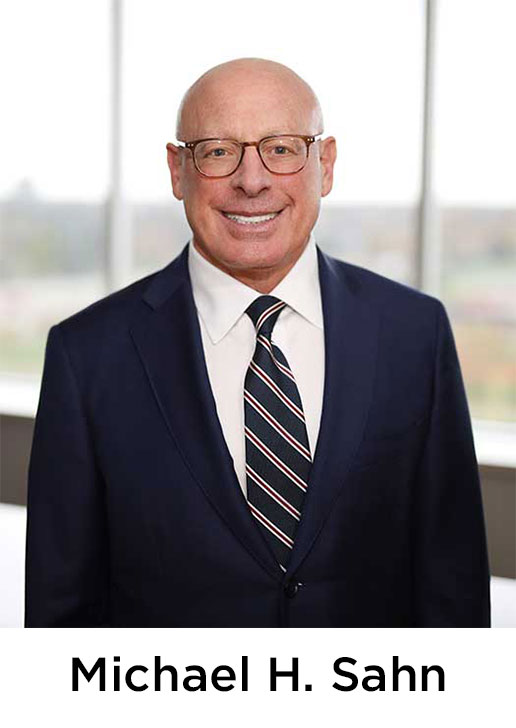
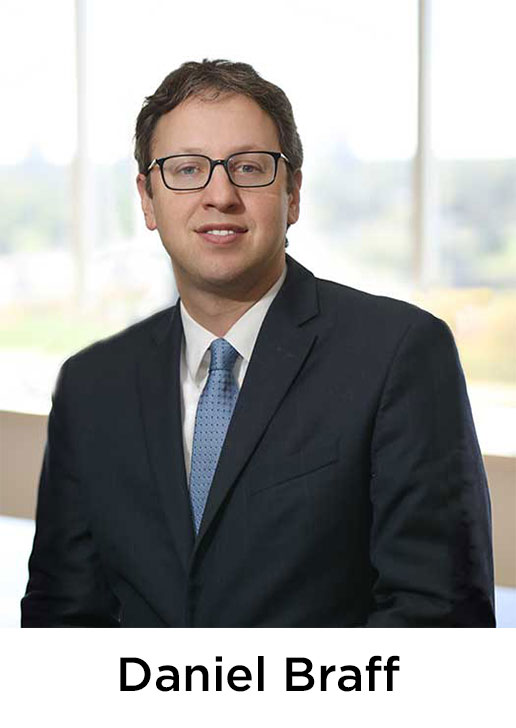

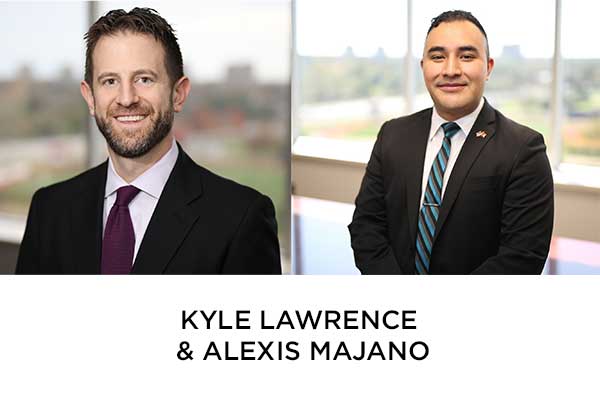
The Covid-19 pandemic has opened the eyes of many when it comes to the use of technology in everyday life. Digital revolutions come in waves and, up until now, professionals such as lawyers have been largely immune to such drastic change. Now, with Covid-19 forcing law firms to operate their practices on a remote basis, the legal community is now facing the digital age and adaptation is essential. Client communications and legal research are two areas where technology has changed the way an attorney advocates for their client.

Over the past 5 months, Member and Partner, Daniel H. Braff, has completed zoning due diligence and provided zoning memos/opinions in connection with 12 construction and acquisition loans in New York City. Most of the loans were for construction financing related to residential and mixed-use projects in Greenpoint, Williamsburg and East Williamsburg in Brooklyn, and NoMad and Chelsea in Manhattan. Of particular note, the project in NoMad would be one of the tallest residential towers in that neighborhood and was part of a large assemblage including multiple lots, which added significant complexity to the analysis. The Firm’s New York City zoning due diligence practice has seen rapid growth over the past few years despite the Covid-19 pandemic, and we expect this area of the practice to continue to grow as confidence builds around a Covid-19 vaccine and investment in New York City accelerates.
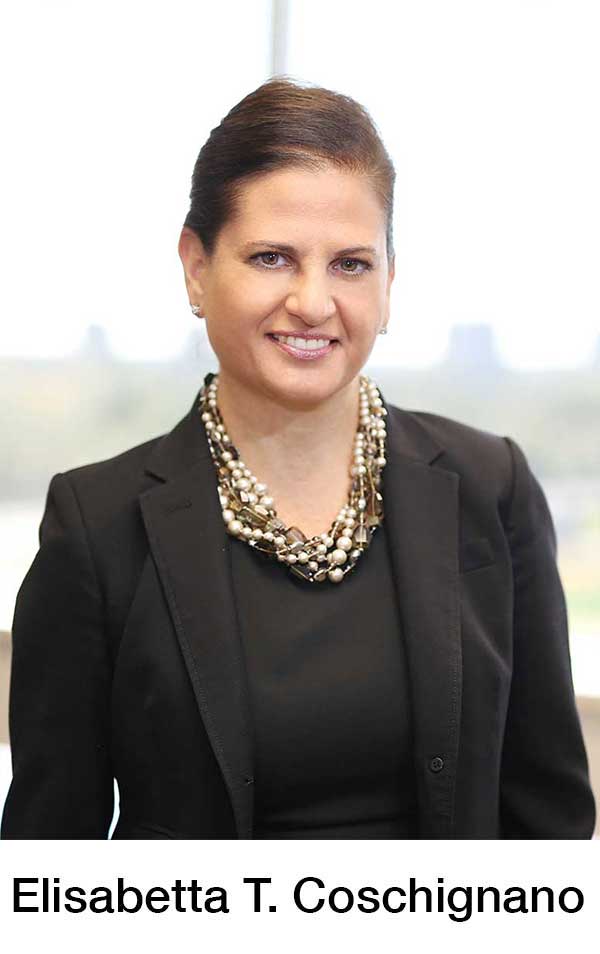
Elisabetta T. Coschignano was appointed to the Board of Trustees of the Boys & Girls Club of Oyster Bay-East Norwich. Elisabetta's years of service and volunteer work in the community earned this distinct honor.

Nicholas Cappadora guided Firm's client, Engel Burman, in approval of a special-use permit to build an assisted living facility in Bethpage. The 152-unit Bristal facility will reserve 40-units to patients with Alzheimer's and other memory related disorders. The new facility will be built with the Covid-19 pandemic in mind with separated areas and special ventilation systems. Read more at Newsday.

Christian Browne helped guide our client, a local charter school, on being approved for the necessary zoning variances in order to expand their current school. This expansion for the client was much needed as it lacked proper playground area and classrooms for the current school enrollment. The school expansion will replace a decaying factory and allow the school to construct a designated playground area for the children. The expansion will also create more classrooms for students.
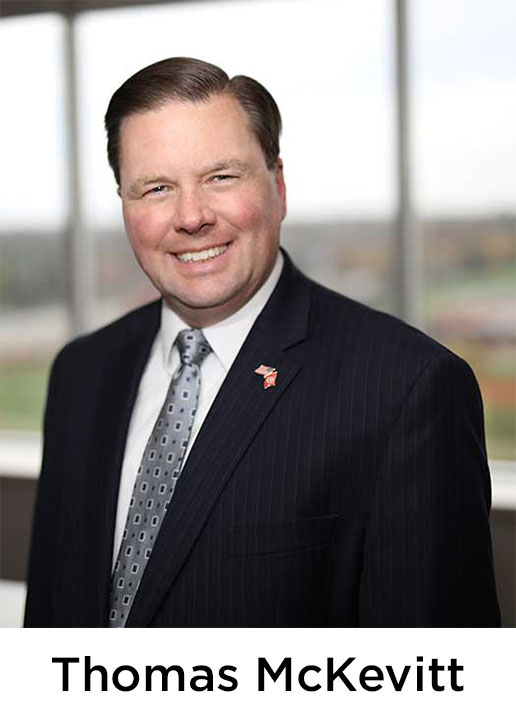
Thomas McKevitt recently published an article entitled "Yes, They Can Make You Tear Down a Finished Building" in the Nassau Lawyer. It examines a recent case in Manhattan where the Supreme Court has ordered approximately 20 stories of a nearly completed building to be removed. The article analyzes the history and application of the doctrine which permits this result.
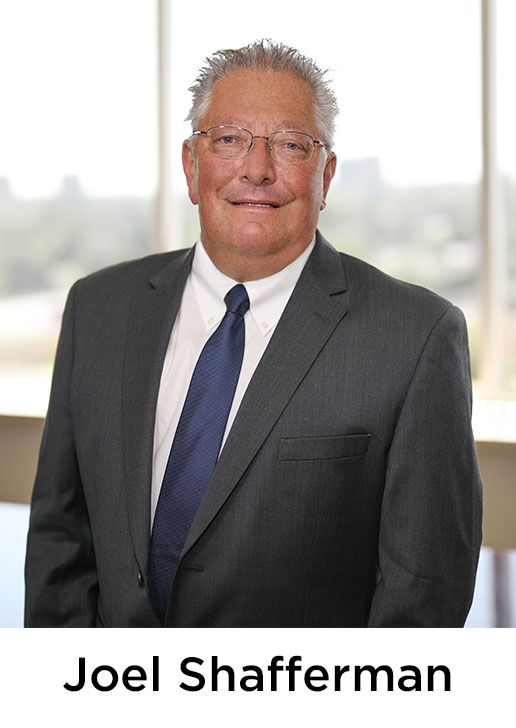
In their idyllic song “Look for the Silver Lining”, Jerome Kern and B.G. DeSylva philosophized that “[w]hen e'er a cloud appears in the blue remember somewhere, the sun is shining and so the right thing to do is make it shine for you.” This hopeful lyric can ring true for small business entrepreneurs despite the challenges they face during this time of economic woe. Even now, as PPP funds are being expended and public health experts are saying that we may be in for a perilous fall and winter, savvy small business owners can still work within the confines of our current situation to achieve economic success.
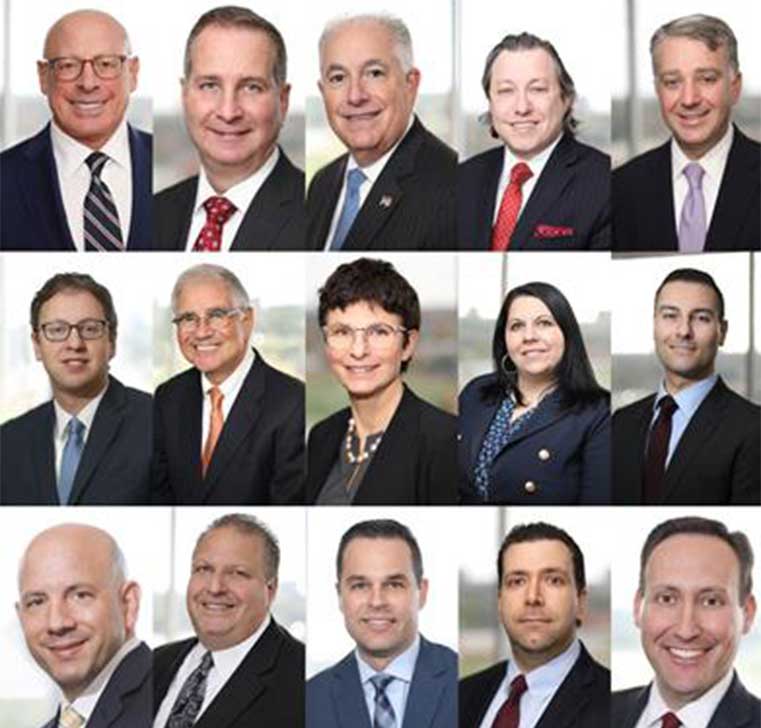
Ten Chosen to New York Metro Super Lawyers List, Five More Selected as "Rising Stars"
Super Lawyers has recognized 15 attorneys from the Firm for 2020 honors in the practice areas of land use, zoning law, real estate law, family law, environmental law and business and general litigation.

SAHN WARD BRAFF COSCHIGNANO PLLC is proud to announce that Elisabetta T. Coschignano has joined the Firm as Partner, and will concentrate her practice in the areas of commercial and real estate tax litigation, zoning and land use planning, real estate law and transactions, municipal law and estate planning.
Ms. Coschignano was associated with several prominent Long Island firms prior to starting her own practice in 2004. Throughout her years in private practice, Ms. Coschignano handled residential and commercial zoning applications, Article 78 and commercial litigation, complex personal injury matters, matrimonial litigation and residential and commercial real estate transactions.
Most recently, Ms. Coschignano also served as Principal Law Clerk to the Honorable Anthony L. Parga, New York State Supreme Court Justice for the County of Nassau; and the Honorable Stephen A. Bucaria, New York State Supreme Court Justice for the County of Nassau, Commercial and Tax Division.
“We are excited to welcome Elisabetta to our Firm. We are very pleased to have a uniquely talented, knowledgeable and experienced lawyer like Elisabetta join us”, said Michael H. Sahn, the Firm’s Managing Member. “Ms. Coschignano’s professional service over two decades both within the judicial system and in private practice will provide an invaluable resource to the Firm and our clients as we continue to grow and expand our practice.”
“I look forward to continuing my career with SAHN WARD BRAFF COSCHIGNANO PLLC, one of the most prominent and successful firms in the Long Island area.” said Ms. Coschignano. “Michael Sahn and the members of the firm are highly respected in their diverse fields of law, and it is my goal to assist the firm in maintaining their level of excellence in service and growth.”
Elisabetta T. Coschignano will be based in the firm’s Uniondale office.

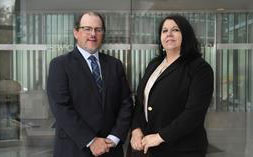
Recently, Michael Sahn had a conversation with partners Elaine Colavito and John Farrell about the Firm’s Suffolk County Office in Hauppauge, and their focus on expanding the Firm’s practice in Suffolk County and eastern Long Island. Elaine and John share their insights, including how the Covid-19 pandemic has affected them and our clients. Here are the highlights of the conversation.

Tom McKevitt achieved a Court determination for Brinkmann’s Hardware in Mattituck to continue to challenge a moratorium that the Town of Southold enacted in response to Brinkmann’s project to build a new hardware and paint store. The Town had sought to delay the project through the moratorium, and attempted to have the lawsuit challenging it dismissed. The Court recognized that the firm had stated a valid cause of action on behalf of the Brinkmann’s. Faced with the prospect of losing the lawsuit, the Town has since commenced eminent domain proceedings to condemn Brinkmann’s land. However, the case continues, and so does the Firm’s efforts for Brinkmann’s to fight for its development rights.

Christian Browne secured final zoning approvals to construct a new 48-unit residential apartment building that will revitalize a blighted stretch of Bayview Avenue in Inwood. Last year, Browne successfully advised the rezoning by the Town of Hempstead. A series of variances from the Town of Hempstead Board of Appeals followed in order to allow our client to develop the assemblage of properties.

Under Michael Sahn’s guidance, the Calvert Manor Shopping has been transformed from a traditional strip shopping center, to a state of the art medical care facility for Northwell Health, while still providing free-standing space for the long term tenants in a stand alone building. This was a creative solution to re-imagine a retail property in the current real estate market.

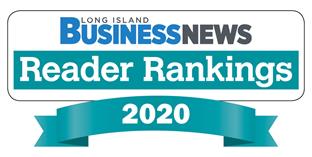
Sahn Ward Braff Coschignano was named the top Real Estate Firm on Long Island by the Long Island Business News 2020 Reader Rankings. The Firm was nominated by readers as one of the top 5 in the real estate firm category. After all votes were counted, Long Island Business News announced that Sahn Ward Braff Coschignano was the top Firm. According to Long Island Business News, Sahn Ward Braff Coschignano has the 11th largest real estate law practice group on Long Island.

We unfortunately all know too well the devastation that the Covid-19 Pandemic has thus far caused the human body and spirit. However, we are only just beginning to get a sense of the long-lasting economic damage that the “brick and mortar” retail industry has suffered because of Covid-19. One can legitimately query whether the Pandemic will result in the large chain store “brick and mortar” shopping being supplanted by eCommerce shopping.
Since the establishment of CompuServe by Dr. John R. Goltz and Jeffrey Wilkins in 1969, eCommerce began its competition with physical shopping as the means by which consumers purchase a myriad of goods ranging from soup to furniture. The sustained growth of eCommerce over the last fifteen (15) years is highlighted by many events, most notably the launching in 2005 of Amazon Prime membership which enabled customers to purchase a wide array of products with free two-day shipping after payment of an annual fee, and Apple’s 2014 launch of Apple Pay, an online payment application.

Working together with State and Local authorities, Michael Sahn and Nicholas Cappadora successfully obtained approval for “United Skates of America” to host outdoor roller skating sessions at its Seaford facility. The approvals permit United Skates' patrons, many of whom are families, to have an enjoyable experience with exercise, recreation and appropriate social distance. In collaboration with the Town of Oyster Bay and Empire State Development's New York Forward Initiative, the outdoor skating was deemed to be a "low risk outdoor recreational activity" that is eligible to open in accordance with the State's re-opening guidelines. The Town of Oyster Bay officials authorized the outdoor use as part of their efforts to help local businesses and the community during the pandemic.
As virtual public hearings become the new reality and the norm, applicants and municipal boards are learning how to ensure successful and informative public hearings. Here are several keys for success:
For the Municipal Board or Agency:
· Proper notice. As with in-person hearings, this is the foundation of a successful virtual public hearing. Proper notice must contain, at the minimum, the name of the public body holding the hearing, the date and time of the hearing, the platform which will be used to conduct the hearing, access information to the virtual hearing, the manner in which the public can submit comments and the deadline for submission of the comments.
· Essential documents should be made available on the municipality’s website. For each application being heard at a public hearing, the essential documents associated with each application, should be placed on the municipality’s website for public access.
· Familiarity and testing of the virtual platform prior to the meeting. It is essential for the host of the meeting and the members of the municipal Board to be familiar with the platform and its essential features, such as letting attendees into the meeting, screen sharing, muting, and queuing public comments and answering questions.


We are at a pivotal moment in history. The unlikely but seismic convergence of a global pandemic, economic collapse and sudden, stark protest of social inequality have awakened us all to the need for change – our culture, our laws, our economy.
This is a time to rethink how we live and work, and that especially includes how we manage our land and our environmental resources.
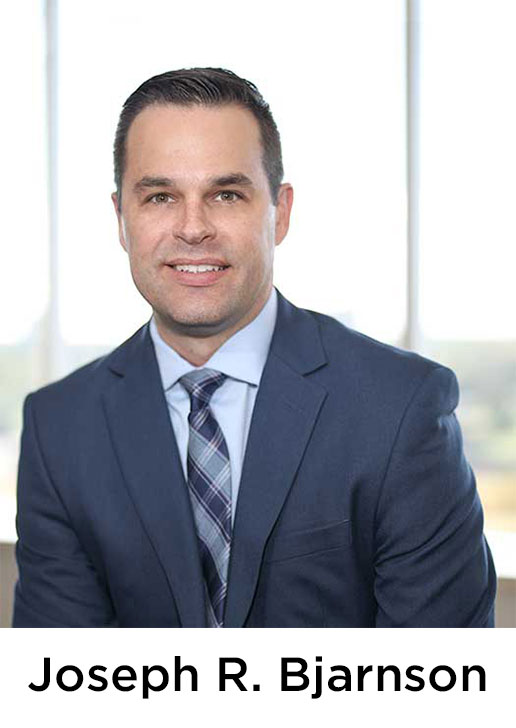
Our Partner, Joseph Bjarnson, fills many roles. Joe is not only a highly talented attorney, he serves his community, has leadership roles in his church, has dedicated countless hours to pro bono legal work and is devoted to his family. In a recent conversation with Michael Sahn, Joe shared some thoughts on life and work during the Pandemic.
Q: Your spouse is a registered nurse and experienced the COVID-19 pandemic on the front lines as a health care professional. What challenges have you and your family faced during this pandemic?
Witnessing the dedication of my wife and her colleagues as they boldly faced the tremendous challenges and stress of caring for the very sick has been a humbling and inspiring experience. In addition to the added stress of my wife’s position at the hospital, everyone in the household has been adjusting to a new routine – the kids have all had to adjust to online schooling, while I have transitioned to working from home instead of the office. For us, the circumstances were an opportunity for growth.

When I accepted a position as an associate attorney at Sahn Ward Braff Coschignano, the world still seemed like a normal place. The Coronavirus was a distant idea relegated to the Far East. In fact, just prior to accepting the offer, I had returned from a trip to Singapore and Malaysia and there, it was business as usual. The only clue that there was any concern about the Coronavirus was a non-descript daily temperature check at my hotel in Singapore, so the idea of an outbreak, much less a global pandemic, seemed far-fetched.

Under Joseph Bjarnson's leadership, the Firm is participating in the COVID-19 Recovery Task Force. Governor Cuomo established the Task Force to create a network of lawyers to assist New Yorkers on a pro bono basis with their legal problems resulting from the global COVID-19 pandemic. Along with other firms and attorneys on Long Island, Sahn Ward Braff Coschignano will be assisting victims of COVID-19 and their families and others affected by the pandemic. Hofstra Law School will serve as a centralized clearing house, connecting volunteer attorneys, legal service providers, and law students with clients in need of legal services as a result of the pandemic.
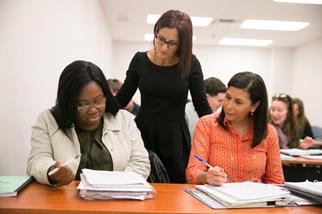
Christine Raffa-Seip, one of our Firm's real estate paralegals, has been part of the highly touted Hofstra Paralegal studies program for a few years. Aside from teaching different courses throughout the academic year, she was also named the Hofstra Paralegal Studies Program Coordinator.
She teaches a wide range of classes to all students, whether those students are just entering the profession or to those students who are more seasoned professionals looking to further their legal knowledge. She’s been a tremendous asset to both the college as well as the Firm. Christine brings with her a wealth of knowledge and experience, particularly in the residential and commercial real estate practice area.

Christian Browne, Michelle Greenberg and Kyle Lawrence recently represented the Diocese of Rockville Centre in the acquisition of property located in Lake Ronkonkoma. The property, which was previously used as a convent and retreat center, will be used by the Diocese as a residence for retired and disabled priests. The team used their knowledge of real estate, land use and corporate law to advise the client in the acquisition of the property, including formation of an entity to acquire and manage the property.

Dear Clients, Colleagues and Friends,
We are pleased to report that we have re-opened our offices in accordance with the guidelines and regulations of New York State, the CDC and local governmental agencies. Our main office at the Omni Building in Uniondale is operating under the procedures put in place by RXR. These procedures include temperature scanning for all visitors, wearing masks and other PPE, social distancing and limits on use of the elevators.
In the interests of everyone’s safety and well-being, we are limiting visitors to the office and the number of staff and attorneys who will be present in the office each day. We have also instituted strict cleaning protocols. Please call us before coming to the office so that we make appropriate arrangements.
We are proud of how our attorneys and staff devoted themselves to working remotely during the last three months. Many of us will continue to work remotely in the weeks to come. We expect remote work to become part of the new norm as we continue to serve our clients.
All of us have faced challenges in our personal, family and professional lives as we respond to the pandemic, and now, also confront the realities of social equality in our Nation. Our firm is and always has been committed to serving our communities and the legal profession, to leadership in the practice of law and in the public sector, to having the vision to meet our clients’ needs now and in the future and to providing the highest quality legal advice and representation. We are more committed than ever to these goals.
As we have done consistently during these challenging times, we recognize the valiant and selfless bravery, sacrifice and heroic efforts of the first-responders, health care professionals and providers, the front line and essential workers and the volunteers who have protected us the past several months and who continue to protect us, and who aid the sick and those in need. They have our enduring gratitude and thanks. We know you join us in honoring their efforts.
Yours Sincerely,
Michael H. Sahn and the Attorneys and Staff of Sahn Ward Braff Coschignano



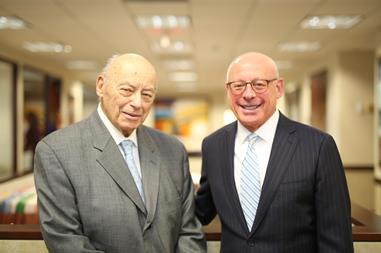
Leadership in a time of crisis is playing out everyday in the battle against the Covid-19 virus: Leadership in our Country at all levels of government, leadership around the World, leadership in healthcare, in science, in business and the public sector and also leadership in legal issues and the rule of law. Hon. Edward G. McCabe, our Special Counsel, has devoted his career to leadership positions in law and in government. Judge McCabe has served as an Assistant District Attorney, North Hempstead Town Attorney, Nassau County Attorney, Supreme Court Justice, Nassau County Administrative Judge and Presiding Judge of the Appellate Term. In those roles, Judge McCabe mentored lawyers, government officials and administrators, many of whom now hold leadership positions of their own. Judge McCabe answered questions about leadership in a conversation with Michael Sahn.
Q. Judge, What are the qualities of a good leader, especially when a leader is responsible for decisions in a time of crisis that affect many people and institutions?
A. I have always believed that a leader must inspire confidence, make decisions based on facts, take charge and do the right thing - always. A leader also must listen carefully to others and give everyone a role in solving problems, set goals to get results, recruit people with character, be loyal to those you serve, and stay focused under fire. To do all this, any person in a leadership position must have passion for the job at hand and never be afraid of adjusting decisions as you move ahead. Achieving goals for the common good is what counts, not what is good for you.
Q. You were the Administrative Judge on 9-11. Everyone under your leadership that day remembers your speech in the Central Jury Part, where you said that the business of the Courts would go on despite the terrorist attack. You said that to do otherwise would give the terrorists a victory over America and our legal system. Tell me what inspired and guided you on 9-11, and likewise in dealing with other crises over the years, like Hurricane Sandy and the 2008 financial crisis.
A. I’ve always been dedicated to protect the rule of law and promote justice. I never gave a thought to closing the Courts on 9-11 because if I did that, I would let down all the people who sacrificed their lives for the simple reason that they were Americans. America is about the common good. Our legal system is the basis for our livelihood and for protecting the common good. Without the legal system and the rule of law, we have chaos. So, I had no doubt about what I had to do.
Q. Everyone who has worked for you learned one lesson very fast - “Tell me what you know, not what you think”. What was behind that “lesson” you taught so well?
A. That’s simple. To make decisions I needed the facts, not what people thought about an issue or what they believed the law said or what they thought the facts were. Learning the facts and knowing the law takes time and persistence. If someone didn’t have the work ethic to learn and tell me the facts, that person could not help in a time of crisis.
Q. Judge, I have a question for our times. Does leadership lead to hope?
A. Yes. A leader instills confidence in others that goals will be achieved and that people and institutions will be successful. Confidence leads to trust and trust to hope for a good result and outcome. In the end, it is all about hope. If people have hope, they are inspired to success, and they achieve goals that they otherwise would not attain. Right now, everything we do must be about confidence, trust and hope.

The Appellate Division granted a motion filed by Partner Christian Browne and Associate Susan Finegan to lift the “automatic stay” in ongoing litigation with the Town of Hempstead to require the Town's compliance with the mandates of the Freedom of Information Law (“FOIL”). The firm’s client sought the disclosure of Town documents related to the Town’s efforts to re-zone a golf course or to condemn it as a public park.
The Nassau County Supreme Court had ordered the Town to provide detailed responses to the firm’s document requests. The Town appealed. Under New York State law, where a municipality files a notice of appeal of a court’s directive, the municipality receives an “automatic stay” that allows it to refrain from compliance with the court order during the appellate process. The appellate court, however, can lift the stay where it finds appropriate circumstances to do so.
The Court found that the automatic stay is not intended to permit a municipality to shield documents that are subject to public viewing pursuant to FOIL.
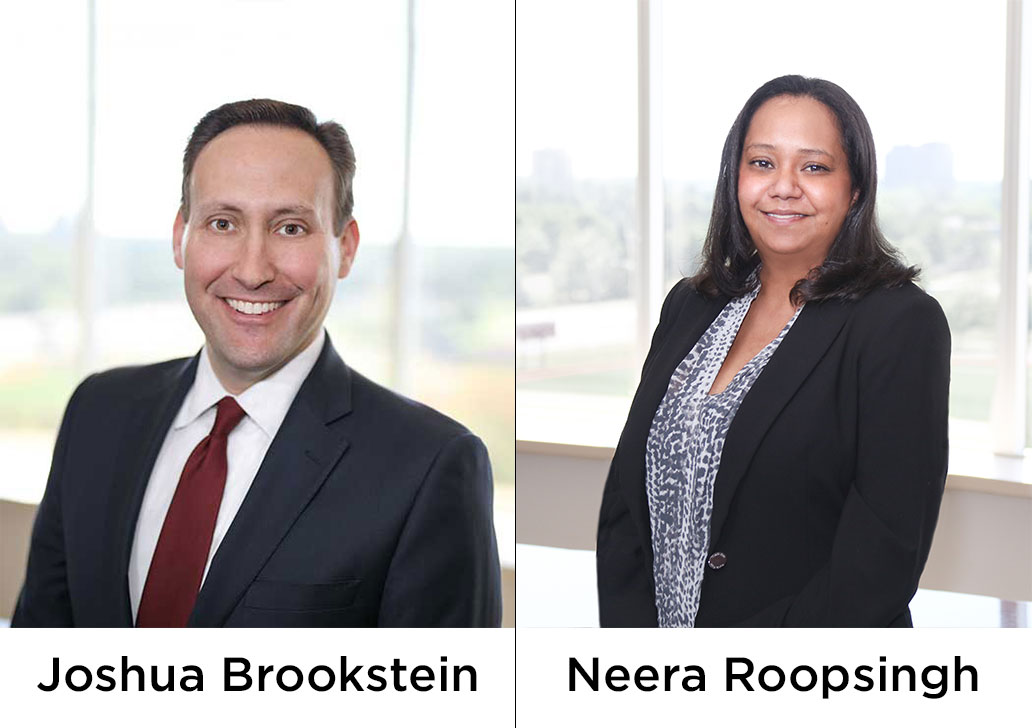
The current pandemic is changing every aspect of life, and in response, the legal community is adapting and changing accordingly. A tenet of municipal governance is the requirement to hold public hearings and meetings. Traditionally, such meetings were held in person. Although New York State law has allowed video meetings for a long time, agencies rarely utilized this option. Under the Public Officers Law, board members could attend a public meeting via videoconference as long as the public notice of the meeting stated that video conferencing would be utilized, and that the notice identified the location of the meeting and that the public had the right to attend the meeting at any of the meeting locations. However, since the COVID-19 pandemic, virtual meetings have become the norm, and may well become the method of choice for hearings for months ahead. In response to the health crisis, Governor Cuomo has issued Executive Orders which temporarily dispenses with the requirement for the public to physically be present at a meeting or public hearing.[1] The Governor’s Executive Orders have also allowed for teleconference hearings that aren’t otherwise allowed under the applicable statute.
Read more here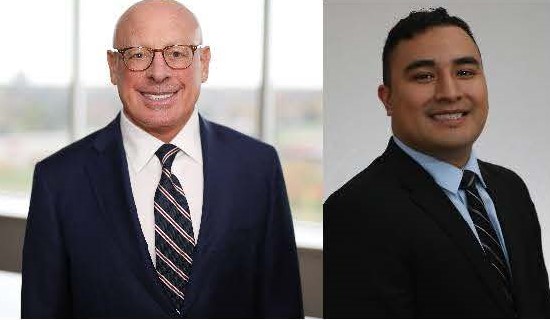
The current pandemic is changing every aspect of life, and in response, the legal community is adapting and changing accordingly. A tenet of municipal governance is the requirement to hold public hearings and meetings. Traditionally, such meetings were held in person. Although New York State law has allowed video meetings for a long time, agencies rarely utilized this option. Under the Public Officers Law, board members could attend a public meeting via videoconference as long as the public notice of the meeting stated that video conferencing would be utilized, and that the notice identified the location of the meeting and that the public had the right to attend the meeting at any of the meeting locations. However, since the COVID-19 pandemic, virtual meetings have become the norm, and may well become the method of choice for hearings for months ahead. In response to the health crisis, Governor Cuomo has issued Executive Orders which temporarily dispenses with the requirement for the public to physically be present at a meeting or public hearing.[1] The Governor’s Executive Orders have also allowed for teleconference hearings that aren’t otherwise allowed under the applicable statute.


Covid-19 has had an immediate and devastating impact on New York City and the surrounding area. Thousands are sick and many have perished. Hospital systems are being pushed to capacity and beyond. “Non-essential” businesses and small businesses, in particular, have been hit especially hard. Residential listings, signings and sales have rapidly declined, retail is shuttered, hotels are empty, and all non-essential construction has stopped.
Given the depth and severity of this crisis, some long-term trends may emerge once this crisis eventually abates.
First, the crisis may have a long-term impact on residential real estate. The residential market was relatively weak going into this crisis. While economic uncertainty tends to drive international buyers into New York City for its stability, and lower interest rates typically support increased sales, this crisis may push a substantial group of current owners and future buyers out of the city. Covid-19 rapidly spread across New York City given its dense urban environment. Moreover, residents are faced with the ongoing challenge of socially distancing in apartments with limited access to open space. Increased focus on open space and reduced density would not be unexpected, and an appreciation of open space may emerge as a long-term trend after the crisis abates. This could drive some people out of the city and to the suburbs. Coupled with likely budget shortfalls, increased government regulation and higher taxes, this crisis could amplify the flight from high tax metro areas, including New York City.
Second, the crisis may have a long-term impact on the office leasing market. With a significant number of people working remotely during this crisis, it is possible that office tenants will take less space and rely more on a telecommuting workforce as we come out of this crisis. This may drive down the demand for office space. On the other hand, office demand may be amplified if companies seek extra space to support lower office density and social distancing practices. Humans crave social interaction, so I expect a limit on how much a company can shift to a telecommuting workforce.
Third, given that New York City is the current epicenter of the crisis in the United States, the impact on tourism may linger well after the crisis is over. Any prolonged impacts on tourism may further depress new hotel development, trigger foreclosures against hotel assets, and result in the conversion of hotels to other uses. This is in addition to the general impact on the city from the drop in tourism revenue.
Fourth, some commuters may avoid buses, trains and subways well after the crisis is over. This could mean more people commuting by car. It will be interesting to watch the interplay between future congestion pricing and a potential increase in auto commuting. Changes in commuting behavior could drive up parking demand in the city and may also impact assumptions and modeling for transit-oriented development and environmental review for development projects.
Fifth, Covid-19 could result in New York City implementing stricter occupancy regulations. The city may impose reduced occupancy limitations for certain high-density spaces like co-working spaces and bars/restaurants, or further restrict the number of patients/residents allowed in nursing homes and senior housing facilities, where Covid-19 has had a particularly deadly impact.
Whether these trends in fact emerge will depend in part on how long this crisis lasts and whether we have a second or third wave of disease. The longer this crisis persists, the more permanent any changes to our behavior will be.

The COVID-19 outbreak, and the corresponding government shutdown orders, are wreaking havoc on our communities, the public health infrastructure, and the economy. One area of the economy that has been significantly impacted by the pandemic has been commercial leases. Large and small commercial tenants alike throughout the country, and our community, have been unable to pay their monthly rent due to the loss of income caused by the shutdown orders on all “non-essential” businesses. Beginning on April 1, many commercial tenants did not make their rent payments, or only made partial rent payments, invoking a variety of legal theories to justify their actions, including force majeure, governmental takings and co-tenancy provisions, as well as common law concepts such as impossibility and frustration of purpose.

Partner and Member, Daniel H. Braff, recently represented a New York City-based real estate investment firm as zoning counsel in connection with two construction loans for complex development projects in Brooklyn and Manhattan, respectively. Both loans were in excess of $50,000,000. As part of the investment firm’s due diligence, Mr. Braff was engaged to provide extensive zoning reviews for both projects.
The first project involved a 70,000 square foot mixed-use building in Greenpoint, Brooklyn. Half of the proposed building will be used for retail and office, and the other half for residential condo units. This project had a unique set of complexities, including inclusionary air rights certificates, a discretionary approval from the New York City Board of Standards and Appeals, and intricate street wall, setback and rooftop obstruction designs.
The second project involved a nearly 50,000 square foot residential condo development in Manhattan’s West Chelsea neighborhood near The High Line, which included floor area generated by a transfer from the highline transfer corridor.

Firm Guides Court Approval for Sale of School Building to Peconic Bay Medical Center Crisis Christian Browne guided Court approval of an application filed by the Diocese of Rockville Centre for permission to sell the former McGann-Mercy High School in Riverhead to Peconic Bay Medical Center. The Medical Center will use the former school building for much needed facilities for patient care and services. Partner, Ralph Branciforte, and Counsel, Michelle Greenberg, collaborated on the court proceedings and real estate transaction.
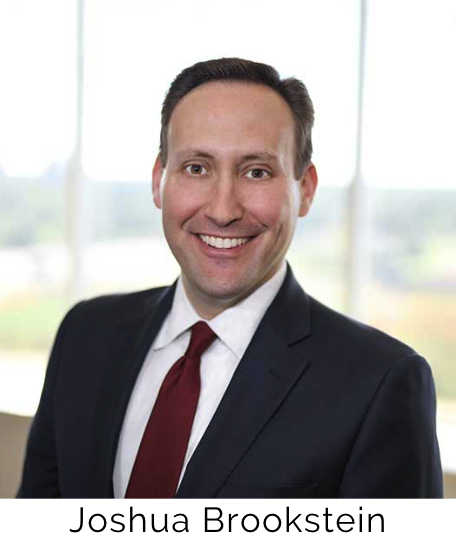
Sahn Ward Braff Coschignano is proud to announce that Partner, Joshua Brookstein, through his role as Chair of the Nassau County Bar Association’s Community Relations and Public Education Committee, will be working with the NCBA’s COVID-19 Response Task Force to organize and execute opportunities to provide County residents with timely and helpful information to address COVID-19.
In order to learn more visit the following site.

Dear Clients, Colleagues and Friends.
As the week has unfolded, it is clear that the pandemic has continued to expand throughout our region and the Nation. The impact on our lives remains uncertain. What is plain, though, is that the heroic and selfless efforts of the health care professionals and first-responders who care for the ill and sick deserve our unending admiration and respect. All of us at Sahn Ward Braff Coschignano honor their service.
We are committed to continuing to meet our clients' needs. We are closely following all legal issues that affect our practice areas, and we are analyzing the federal and state legislation and orders as they are enacted and implemented. We are developing strategies for our clients to deal with issues such as the performance of contractual obligations during the healthcare crisis, employment, environmental and corporate compliance issues resulting from orders to close business operations, insurance coverage issues, litigation issues related to the temporary closure of the courts, the impacts on local governments in providing essential services and conducting the public business notwithstanding the need to cease normal operations, the impact on real estate transactions and the issues in what amounts to a temporary moratorium on land use, zoning and building permit applications during the crisis period. We know that everyone is receiving numerous announcements and notices by email or otherwise about the new legislation and orders. Our focus, however, is on analyzing and understanding these issues now as well as when the crisis abates. We are planning to send periodic advisories on these matters going forward.
None of us chose the difficult times that we now confront. Yet, we do have the ability, knowledge and wherewithal to determine and guide our responses. That is our goal and commitment at Sahn Ward Braff Coschignano.
We will continue to communicate as we work from our remote locations from Long Island, Manhattan, Westchester and New York City. We extend our sincere thoughts to all as we stay home and stay healthy.
Yours Truly,
Michael H. Sahn
Dear Clients, Colleagues and Friends,
Events of the past week have affected all of us as we adjust to the measures we need to take to protect the health and safety of each other, and ourselves and families. We are committed to comply with all government directives to close our offices for normal business. At the same time, all of our attorneys, paralegals and staff are and have been working remotely. We are on line, and available virtually at all times. We are monitoring all advisories for the courts, and from the federal, state and local governments so that we can continue to serve our clients’ needs. We expect that events will continue to unfold at a rapid pace, and as they do, you have our assurance that we will be ready to deal with any issues that arise.
What is most important now is preserving the public health. We remain committed to serve our communities and our profession. We ask everyone to please think of the health care professionals, providers and first-responders who are on the front lines of confronting the Covid-19 pandemic. We are proud of their work, and know that they are serving to protect all of us. We honor their selfless service.
In the days ahead we will continue to communicate to all. In the meantime, we send everyone our most sincere regards. We wish for your good health and safety.
Yours truly, Michael H. Sahn
Dear Clients, Colleagues and Friends,
All of us at Sahn Ward Braff Coschignano are deeply concerned for the health, safety and welfare of everyone in our Country and throughout the World who is or may be affected by the COVID-19 virus. We are confronting difficult and unprecedented challenges in our personal and professional lives. No doubt, in the days and weeks ahead, we need to unite and work together to succeed in conquering this threat to our health and way of life.
We are committed to our fundamental principles of leadership and service to our clients, our communities and our profession. We remain steadfast to fulfill our mission to provide the highest level of legal advice and service. Please consider us as your resource for guidance and counsel in the days and weeks ahead. Our offices are open and our lawyers and staff are working remotely or in the offices.
We extend our sincerest wishes for good health for you and your families.
From my personal perspective, I am proud of all of my colleagues, and our entire staff, for their commitment and dedication, and appreciate your continued trust in all of us at Sahn Ward Braff Coschignano.
Yours truly,
Michael H. Sahn
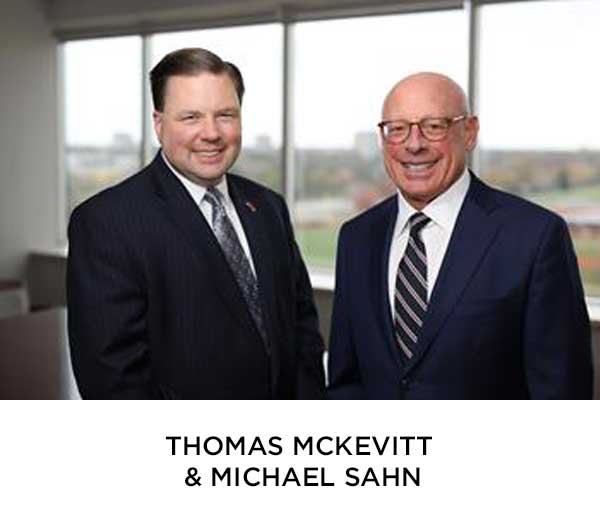
No area of law has more significant trends that will affect all of us in 2020 than Municipal and Land Use law. Here are the top trends from our team:
1. Housing of all kinds will dominate many discussions. There are so many housing variations that will demand our attention: Affordable Housing, Workforce Housing, Transit Oriented Development, housing for millennials, seniors and near seniors, Assisted Living in its many variations, and "fair housing". Where, and how, we allocate our resources to deal with housing issues, and where and how we live in the years ahead will be big issues at all levels of government.
2. Climate change will dictate more and closer scrutiny of environmental impacts and reviews of proposed developments. It does not matter where we live. We will confront issues such as rising sea levels, more severe weather events, global warming, alternative energy sources and the like head on in 2020. And, as the federal government rolls back regulations affecting many environmental concerns, the role of state and local government will grow more comprehensive and important.
3. The nationwide deployment of 5G technology will continue to generate community and public concern, and litigation. Everyone uses and wants more technology, data and faster internet service. But, when having 5G means more poles, nodes, transmission facilities and hot spots, the result is dispute and controversy. The federal government, through the FCC, has pre-empted most local regulation. But, that has not stopped the litigation and it won't. The horses are out of the gate on 5G and they aren't coming back. We are going to spend a lot of resources to hold it back where we don't want it instead of balancing where, how and when to allow it to be built.
4. After the Supreme Court's stunning reversal of established precedent in the Knick case to allow property owners to assert due process takings claims in the federal courts without first exhausting state court remedies, we expect more cases in both federal and state courts. These are highly complex legal issues. There is much to sort out but, as in many areas of law, we expect more litigation and claims. Local governing bodies must be careful in handling all issues or face the potential for more due process taking claims to defend.
5. Closer scrutiny of the real property tax structure will lead to closer scrutiny of development incentives, tax abatements, payment in lieu of tax agreements and the granting of tax exemptions for certain categories of uses. When real estate tax money is needed to fund so many local services and entitlements, the debate will only get louder on who gets what and who doesn't and the appropriate balance between encouraging development projects and incentives. As we learned from the failed Amazon project, there is no safe bet in this area of the law.

We need a new, long range vision for land use regulation. Why? Because the land we are regulating is changing rapidly. This presents challenges and consequences that we are only beginning to understand.
Read the entire article at Innovate Long Island.
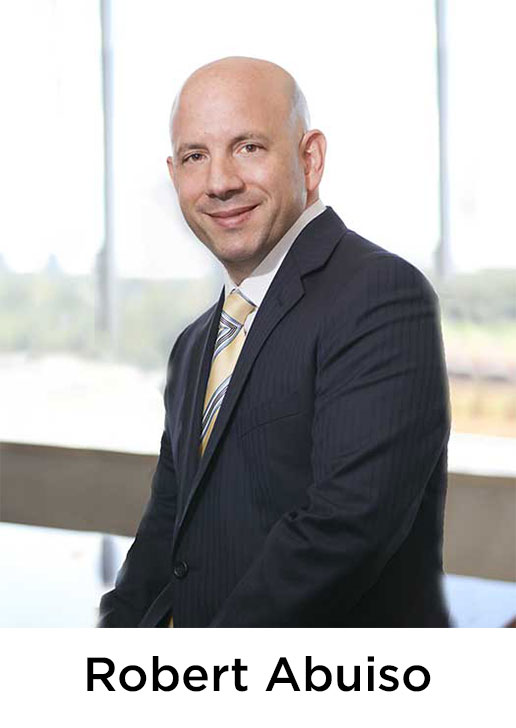
The practice of personal injury law has become a highly specialized and complex field. Navigating through the pitfalls of “threshold" issues and liens against a damage recovery is complicated. These liens can be for Medicaid/Medicare/Social Security Disability (SSD), Workers Compensation, and the like. It is easy to get caught up in disputed liens years after the case in chief is over or settled. In some instances, the lien holder may pursue remedies years after the case is concluded; against the client, attorney, or carrier before settlement. Additionally, "consent to settle" may be required prior to settlement with the carrier. Failure to do so will be fatal to a case. That is why the personal injury practitioner must pay particular attention to resolve these issues prior to completion of the case. Equally important is knowing the exact amount of the lien prior to making any settlement demand on the carrier in negotiations. In this way, the carrier could consider the lien amount in making a settlement offer.
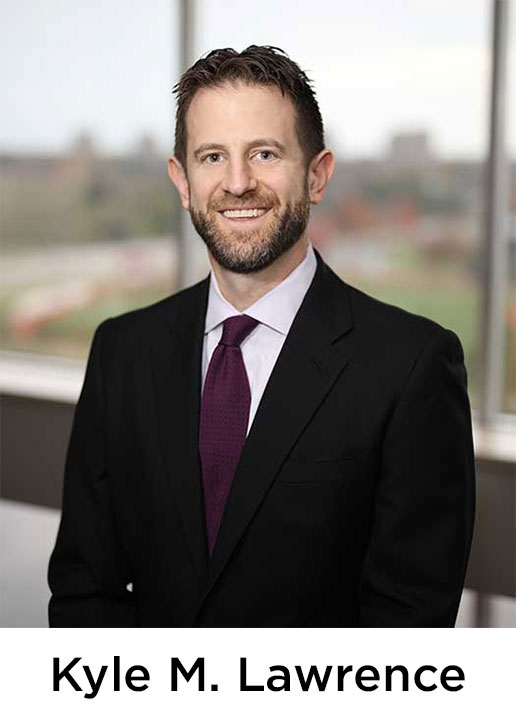
Kyle Lawrence was recognized in the February 18th New York Real Estate Journal Semi-Annual Ones to Watch Spotlight. This special section recognizes the emerging talent and achievements of individuals within their professions. Read more here at New York Real Estate Journal's February 18, 2020 edition.

Kyle Lawrence led the Firm's team that guided its client, 31st & 3rd Pharmacy Inc and its principal owners, on the sale of the principals’ equity to affiliates of Kinderhook Industries, a private equity firm engaged in the healthcare services space, for $23.5 million. The purchaser was represented by Kirkland & Ellis. The Firm was able to successfully negotiate the transaction and completed the definitive agreements among the parties.
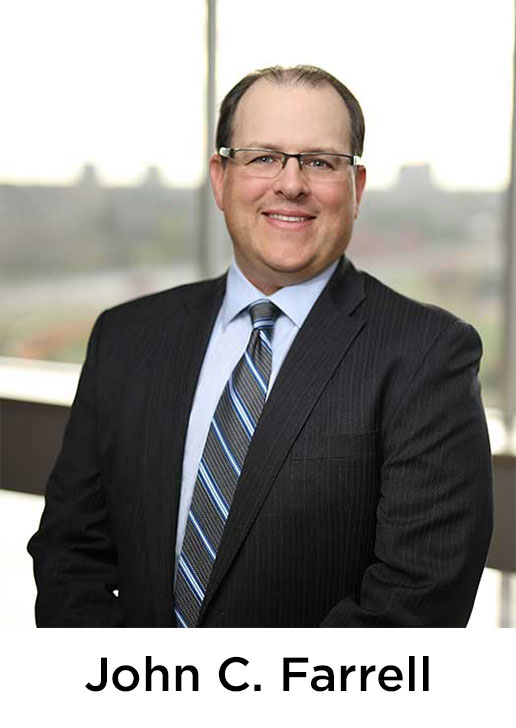
John Farrell recently represented Gesher Community LLC, in its application to the Village of Great Neck Board of Trustees for various incentive bonuses and zoning waivers for the proposed a redevelopment of the property at 733-741 Middle Neck Road. The current site houses five dilapidated buildings that have been underutilized for many years. The proposed development will include a four-story building with 25 residential apartments and public art gallery space on the first floor. This project represents a significant upgrade for the community and will enhance the character of the community.
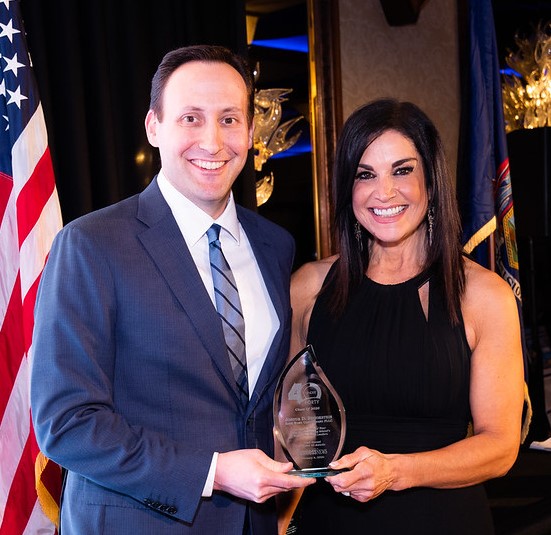


Just like the economy, the Mergers and Acquisitions world is shaped by countless, ever-evolving factors. Numerous considerations, such as looming concerns of a recession (both globally and here in the United States), trade tensions with China and the uncertainty that is inevitable during presidential election years can dictate how and when companies should seek to expand their business vis-à-vis an M&A deal.
The U.S. saw approximately $1.5 - $1.7 trillion in domestic and international M&A deal volume in 2019, representing an approximate 8% decrease from 2018, while domestic IPO activity rose by approximately 45% from 2018 to approximately $60 billion in activity in 2019. Notable highlights include Disney’s acquisition of 21st Century Fox for $84 billion, DowDuPont’s $40 billion spin-off of Dow Inc., and the $8.1 billion Uber IPO. A strong U.S. economy relative to Europe and Asia, increased valuations resulting from corporate tax cuts and decreased regulations seems to have caused over-valued businesses and increased corporate leverage, thus partially explaining the decrease.
Election years, like 2020, often cause market uncertainty as companies brace themselves for changes in the regulatory, economic and geo-political landscape. Fortunately for private equity investors and strategic buyers, this uncertainty often leads to (i) companies looking to remain proactive as a means of strengthening themselves during periods of uncertainty and staying ahead of their competitors, and (ii) potentially lower valuations. With record-levels of available cash being held by private equity firms (aka “dry powder”) estimated at $1.3 trillion at the outset of 2020, these investors will likely be chomping at the bit to take advantage of these reduced valuations as they aggressively seek to deploy those funds. On the other side of the equation, Ernst & Young’s latest “Global Capital Confidence Barometer” found that 52% of senior executives that responded to the survey expected their company to actively pursue an M&A transaction during 2020. In other words, 2020 should see an increase in M&A activity.
What does this mean for you and your business? The bottom line is that if you were ever thinking of selling or expanding your business, 2020 might be a golden opportunity for you to do so as these private equity investors and strategic buyers are potentially looking for companies such as yours. To that end, have you ever conducted a formal valuation of your business? Are you facing stagnant revenues and are unsure of how best to take your company to the next level? Are you looking to expand your business into new markets, new regions or expand your ability to offer new products? To discuss where to take your business in 2020, please feel free to contact me at KLawrence@sahnward.com or (516) 228-1300.
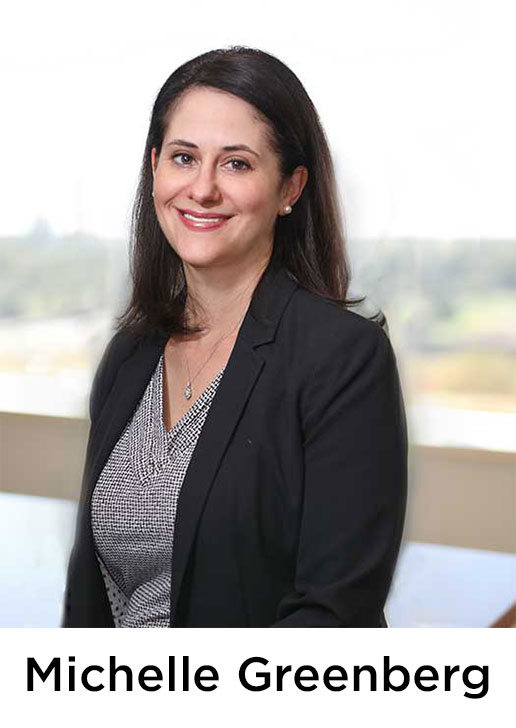
Michelle Greenberg, discusses the trends in commercial real estate that she thinks we will see in 2020:
• Despite the challenges WeWork faced since their failed IPO, there continues to be significant growth in the flex office space providers in the likes of Knotel and Spaces by Regus. Occupiers are looking for flexibility to grow and contract, as well as the ability to invest in retaining and attracting talent. Co-working offers a flexible menu of options with modern facilities which make including co-working a very attractive option as part of a corporate client’s real estate strategy. Additionally, given the competition and demand for amenity spaces, owners are creating their own brand to offer similar services in order to attract tenants.
• Tech growth continues – Despite Amazon HQ2 pulling out of Long Island City in 2019, leaving a $3 billion incentive package on the table, Silicon Valley keeps pushing forward in New York City. Facebook completed a deal in November 2019 to take 1.5 million square feet at 50 Hudson Yards and they are not the only tech company with grand New York City plans. The access to tech talent in the New York City metro area has been a catalyst to growth and look for this trend to continue in 2020.
• Sustainability efforts continue to trend as building owners try to minimize carbon footprints through implementation of energy efficiency improvements and savings. This will continue as New York City legislation goes into effect requiring buildings over 25,000 square feet to reduce greenhouse gas emission by 40% by 2030 increasing to a targeted 80% decrease by 2050). It is estimated that the Climate Mobilization Act will impact 60% of the current building stock as a result.

Christian Browne and Elaine Colavito successfully prosecuted their clients’ claim for title to property by adverse possession in a dispute between property owners in Long Beach. The case arose in the aftermath of Hurricane Sandy, when many properties in Long Beach were severely damaged. The storm brought down large trees in the clients’ backyard and destroyed a 40-year-old fence that ran along their rear property line.
The clients attempted to replace the fence on the same line after the storm, but the replacement drew an objection from their neighbor to the rear, who claimed that the fence was several feet on to his property. Subsequently, the neighbor sold his parcel to a developer who proceeded to knock down the clients’ new fence when he began construction of a new house on the neighboring lot. The firm's clients' commenced an action against the developer, claiming that they had acquired title to the area around the fence by adverse possession and seeking a judgment ejecting the developer from the disputed land.
After a trial before Nassau County Supreme Court Justice Steven Jaeger, the Court found that the Plaintiffs had proven their claim to title to the disputed land by “clear and convincing evidence.” The Court also ruled that the defendant developer should be ejected from the disputed area and awarded the clients money damages for the damage done to their fence.

Michael Sahn guided Fogo de Chao in opening its new, 300 seats upscale Brazilian steakhouse in Carle Place. Fogo de Chao has restaurants throughout the United States and in many countries. The restaurants feature top quality food, prepared in the traditional Brazilian culinary technique and upscale dining environments. The Firm represented the restaurant through a series of land use, zoning and administrative approvals to a successful opening just before the holidays. Read More here about the successful opening.